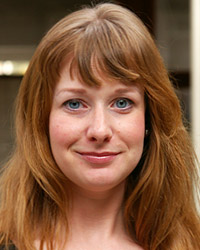Introducing: Francoise Baggeler
Francoise Baggeler started her PhD at the Institute for History on 1st of september 2011.
 My name is Francoise Baggeler. I studied and worked in Bonn (Germany), the city where I was born and raised. Recently I moved to the Netherlands to pursue my passion for history. In September I started my research concerning Turkish and Spanish ‘guest workers’ in Cologne and Rotterdam under supervision of Prof. dr. Leo Lucassen.
My name is Francoise Baggeler. I studied and worked in Bonn (Germany), the city where I was born and raised. Recently I moved to the Netherlands to pursue my passion for history. In September I started my research concerning Turkish and Spanish ‘guest workers’ in Cologne and Rotterdam under supervision of Prof. dr. Leo Lucassen.
During high school my passion for history grew and I decided that I wanted to make it my profession. In 2004, I experienced a personal turning point. There was no way back. I enrolled in the Rheinische Friedrich – Wilhelms – University for a Magister Artium in Medieval and Modern History and I took Social and Economic History and Political Sciences as minors. Having developed a broad insight in the field of history during the first two years I thought it difficult to make my next choices. My doubts, however, vanished when I started to work at a museum of Contemporary German History from 2006 until 2009. It motivated me to focus on Contemporary History. Especially historical issues with strong social and political aspects filled me with enthusiasm. I explored the sixties and seventies in which I took interest in ‘guest worker’ migration. After graduating in Bonn I worked as a freelance and administrative employee while developing a plan for my PhD-research. I was tempted to apply for a position as buitenpromovenda at the Institute for History in Leiden when I found out about the expertise in Migration History present in this Institute.
My research about Turkish and Spanish ‘guest workers’ from 1960 to 1975 is based on a comparative design and aims to be interdisciplinary. I am particularly interested in analyzing the mutual interests and interaction between the two groups of immigrants and the locals in each city, namely Rotterdam and Cologne. In the second part of my project I want to examine the consequences of these cross-cultural encounters in the long run, both for the life of the migrants and their descendants as well as for the development of the integration debate in the last 30 years.
